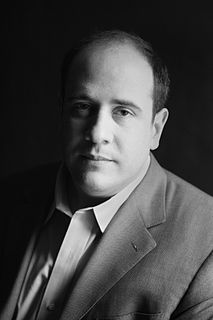A Quote by Simon Tam
We sometimes become so obsessed with punishing villainous characters, that we forget the collateral damage is actually experienced by marginalized groups, and we shouldn't punish them for that.
Related Quotes
I see this with experienced writers, too: They worry so much about the plot that they lose sight of the characters. They lose sight of why they are telling the story. They don't let the characters actually speak. Characters will start to dictate the story in sometimes surprising, emotional, and funny ways. If the writers are not open to those surprises, they're going to strangle the life, spark, or spirit out of their work.
The nature of acting is that one is many characters and jumps from one skin to another as a way of life. Sometimes it's hard to know exactly what all of your characters think at the same time. Sometimes one of my characters overrules one of my other characters. I'm trying to get them all to harmonize. It's a hell of a job. It's like driving a coach.
Literary fiction and poetry are real marginalized right now. There's a fallacy that some of my friends sometimes fall into, the ol' "The audience is stupid. The audience only wants to go this deep. Poor us, we're marginalized because of TV, the great hypnotic blah, blah." You can sit around and have these pity parties for yourself. Of course this is bullshit. If an art form is marginalized it's because it's not speaking to people. One possible reason is that the people it's speaking to have become too stupid to appreciate it. That seems a little easy to me.
Even as considering African-Americans, immigrants and other groups who may be marginalized in different ways, American Muslims are still one of the most marginalized groups. Overt prejudice is probably more acceptable toward American Muslims than any other single group in the U.S. There is still a lot of policies in place that are incredibly effective that don't show any signs of eroding. So, I don't want to overstate the optimism but I think things are headed gradually in the right direction. Just because of the distance between us and 9/11.
It's a misnomer to say you can criminalize one part of the transaction and not criminalize the entire transaction. For example in Sweden, where the law was passed in 1999. Those laws didn't actually decriminalize people who sell sex; they introduced new criminal penalties for the people who buy sex. Nothing changed in the legal status for the sex workers themselves. It's impossible for them to operate a legal business. When you criminalize part of a transaction, you're creating collateral damage for all those engaged in it. You are now making them work in a criminalized context.




































